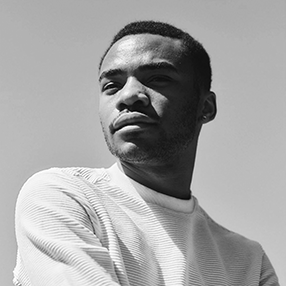I Woke You with Wagner,
called you from your idle
dream-workshop with the subtle spanners,
half-speeches, after keeping
you up late as my youth last night, later
than the gods’ twilight, who witnessed your trials
at fixing kinks in my causal body, just before sleep.
(Though I guess now that gods do sleep, I don’t know where.)
I watched a star burn through your wall-length windows
—no sun of ours, we were long past
midnight—resplendent fire raging far more
distant, more dead. Pur ti miro, you showed me,
Pur ti stringo, pur ti godo. I felt closer than
ever to inspiration—each breath into passive lungs—
while your fingers pressed behind my neck.
Pur t’annodo: I enchain you, I tie you down.
You left me asleep on the couch, and I thought by
dawn I’d sneak in beside your soul. But
a blessed light came disrupting the blind-
fold and blinds, and instead I woke you with Wagner.
Copyright © 2025 by Logan February. Originally published in Poem-a-Day on June 17, 2025, by the Academy of American Poets.
“Sleep is sweet. The magnificent Vorspiel (or prelude) to [Richard] Wagner’s Das Rheingold is sweeter; it sounds like the sun rising. This poem is caught in a vulnerable fix between dream and morning—both wanting for intimacy and wary of idealism and intimidation in a romance like [Claudio] Monteverdi’s ‘Pur ti miro’ duet. I don’t know a lot about opera, but these two certainly have different desires. Perhaps the speaker has more affinity with the protagonist of Das Rheingold’s prelude, who renounces love in return for gold. In the case of the poem, I feel the choice of restraint favors personal power. Where do gods sleep? Presumably, on the couch.”
—Logan February

